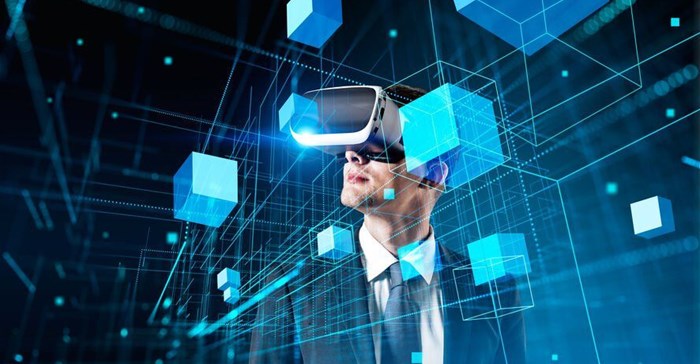Top stories
![Today, Halo and Demographica announce a new specialist agency, Second Rodeo]], headed up by Mike Stopforth (left). Dean Oelschig, managing partner and founder of Halo (right) says they will work as a group but ultimately, each agency will be an individual specialist](https://biz-file.com/c/2505/772543-300x156.jpg?2)


Marketing & MediaHow Spar is using localised marketing to redefine the urban retail experience
Karabo Ledwaba 2 days



More news





ESG & Sustainability
How South Africa’s conservation efforts can thrive with Indian partnership










The Gap recently launched its first collection of non-fungible tokens or NFTs on the platform. Selfridges and Charli Cohen celebrated the 25th anniversary of Pokémon by opening a virtual city in the metaverse where shoppers can browse for exclusive digital and physical products.
And recently, more than 50 influential brands such as Tommy Hilfiger, DKNY and Dolce & Gabbana appeared at the first Metaverse Fashion Week, a glitzy fashion show that took place entirely in the metaverse.
The metaverse creates countless new opportunities for retailers and brands by allowing consumers to move seamlessly between two realities.
According to Accenture's Technology Vision 2023, 96% of executives agree the convergence of digital and physical worlds will transform business over the next decade.
Locally industry reports show that almost 80% of South Africans could see themselves interacting with a brand in the metaverse in the future. While commercial applications are still in their infancy, the metaverse is set to transform how retailers and brands interact with consumers If all this sounds a bit farfetched, or more science fiction than reality, think again.
But to take advantage of this emerging marketplace, you'll need to get past some myths.
The metaverse era has begun. Early versions are already emerging – everything from social gaming platforms to fully immersive virtual reality worlds on VR headsets to augmented-reality smartphone experiences.
Eventually, experts expect the metaverse to develop into a series of shared virtual spaces that people can inhabit as quickly as the real world. South African companies are also joining the metaverse.
Ubuntuland is a virtual world that exists in Africarare, Africa's first metaverse. Last year, Africarare saw massive demand for virtual land, with companies such as MTN and advertising agency M&C Saatchi Abel purchasing real estate in the immersive world. For retailers and brands, the question is not whether they will participate — it's how they will use these new digital spaces to reimagine their businesses.
More consumers are buying or interested in "virtual fashion" – clothes or accessories for an avatar. Nikeland was one of the first proof of concepts for mainstream metaverse commerce. It facilitated a Nike-branded gaming experience and, crucially, allowed users to buy virtual goods from Nike itself. As a result, Nike's digital results now represent 26% of its total Nike brand revenue and have received over 21 million visitors.
While avatars in an online platform may be decked out in branded sneakers, apparel and beauty companies are not the only ones venturing into the metaverse.
McDonald's has filed a trademark for a virtual restaurant in the metaverse that will deliver real burgers and fries to your door. For Halloween last year, Chipotle became the first restaurant brand to open a virtual location on the Roblox platform — with early visitors dressed (virtually) in costume qualifying for a free burrito.
Speaking of Roblox, Game was the first retailer in South Africa to join the metaverse through a Roblox treasure hunt game, which offered gamers the opportunity to win over R70 000 in vouchers leading up to Black Friday and Cyber Monday.
Some virtual applications require VR headsets for the whole experience. But not all. A great example would be Woolworth's 'Virtual Try On' service which enables customers to try on hundreds of shades of lipsticks, eye shadows and mascaras through their smartphone application.
Retailers should think about the metaverse as a continuum of immersive experiences and experimenting across the board with live-stream shopping events, virtual digital stores and other experiences that can be accessed from a smartphone, a tablet or, for those who choose a VR headset. In other words, this could be an extension of e-commerce – allowing a more immersive shopping process.
The metaverse is not a replacement for physical stores – it's an extension. Over 50% of consumers anticipate spending more time in digital spaces. That will allow retailers to experiment with building deeper relationships with their consumer base. For instance, offering a VIP experience for your top customers by connecting them 'live' with an expert/brand ambassador who can provide consultation as they meet up in a virtual store or showroom.
Consider what this would do for your employee value proposition, allowing them to work from anywhere.In many ways, the metaverse may resemble the early days of online or mobile commerce.
Consumers will be shifting more of their work lives, leisure time and shopping excursions to immersive platforms, like the Gucci Garden, where users can wander through virtual recreations of iconic Gucci campaigns from the past. And that means retailers will need to imagine ways to create a memorable virtual experience for their consumers – not to mention their digital avatars.The metaverse may seem daunting or opaque, but businesses can move ahead by keeping their strategies focused and straightforward. The prize is huge for companies that take an integrated approach and tap into the total and vibrant potential of the metaverse for customers.
Here are the three no-regret moves that businesses need to take to engage consumers truly:
Running through all of this is the need to start thinking about the metaverse as something that will become as ubiquitous in consumers' day-to-day lives, as the internet and mobile devices are today.